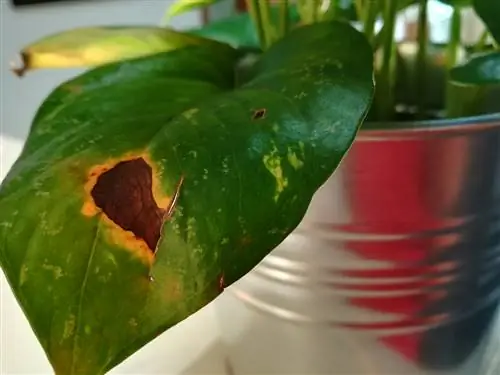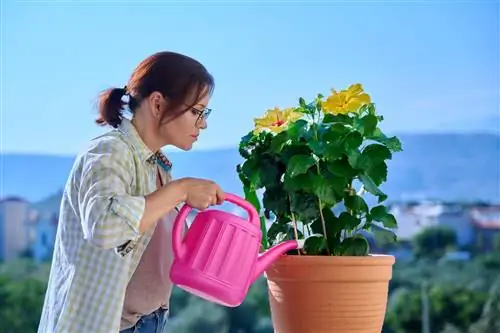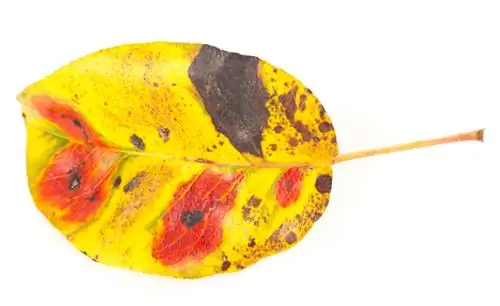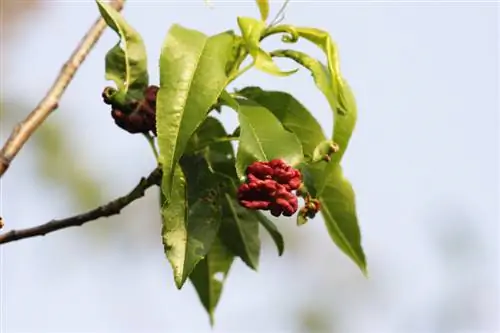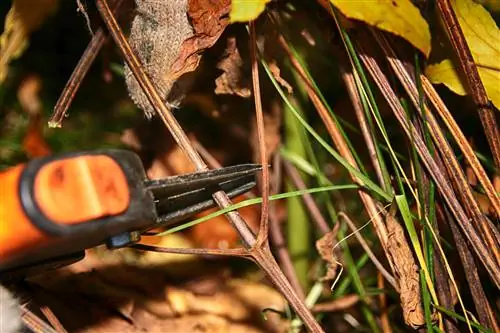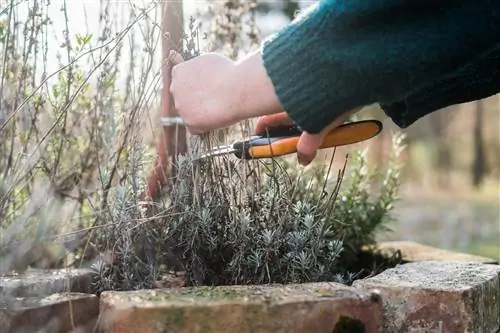- Author admin [email protected].
- Public 2023-12-16 16:46.
- Last modified 2025-01-23 11:22.
Discoloration or deformation on the leaves of your houseplant? There is no question that the plant is suffering from a leaf disease. But what exactly is it? And what are the causes? Since identifying the disease is crucial for successful treatment, you will find the most common diseases and their symptoms on this page.
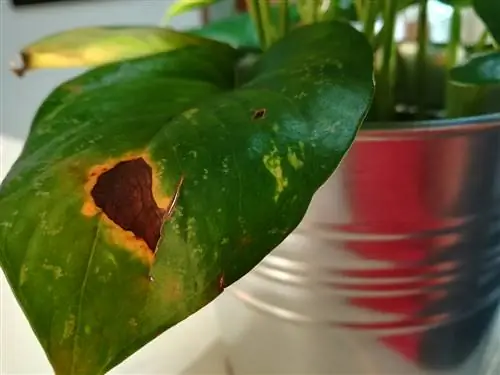
What diseases can affect the leaves of houseplants?
Houseplants can suffer from leaf diseases such as chlorosis, leaf spots or powdery mildew. Symptoms include discoloration, spots or a white film on the leaves. This can be remedied by adjusting the site conditions, watering behavior and, if necessary, using iron-containing fertilizers.
Chlorosis
Chlorosis occurs when the plant cannot absorb iron through its roots. It is a nutrient deficiency, the cause of which is usually waterlogging or irrigation water that is too calcareous.
Symptoms
- green leaf veins
- Leaves brighten
Treatment
Check your watering behavior and fertilize the houseplant with iron-containing products (€5.00 on Amazon).
Leaf spots
A fungus is responsible for spots appearing on the leaves of your houseplant. The weaker the houseplant, the more likely an infestation is. The following factors promote the occurrence:
- Waterlogging
- irrigation water that is too cold
- too high humidity
- stuffy, heated rooms
Symptoms
Depending on the type of disease, the following leaf changes occur:
- on Alternaria: brown spots
- in Ascochyta: reddish brown spots
- at Septoria: yellow spots
First, round spots with a black border form on the leaves. As the disease progresses, these expand in diameter, grow into each other and thus ensure that the entire leaf dies.
Treatment
Remove all affected parts of the plant and adjust the site conditions and watering behavior.
Tip
Oil spot disease is a variant of leaf spot disease. You can also recognize them by the dark leaf spots, which are also covered with a greasy film. Ivy in particular is often affected by this variant
Mildew
Aphids are not only found outdoors, but also thrive on houseplants. The small lice are either red, yellow, green or black and are often found on the undersides of the leaves. Here they suck the plant sap out of the veins and let the leaves dry out.
Symptoms
Aphids leave secretions on their host plant, called powdery mildew. This is a gray or white film on the leaves.
Treatment
In the case of a light infestation, it is sufficient to rinse the plant and remove the mildew with a damp cloth. If the symptoms do not subside, dissolve soft soap in water and spray the plant with the solution several times a day.

